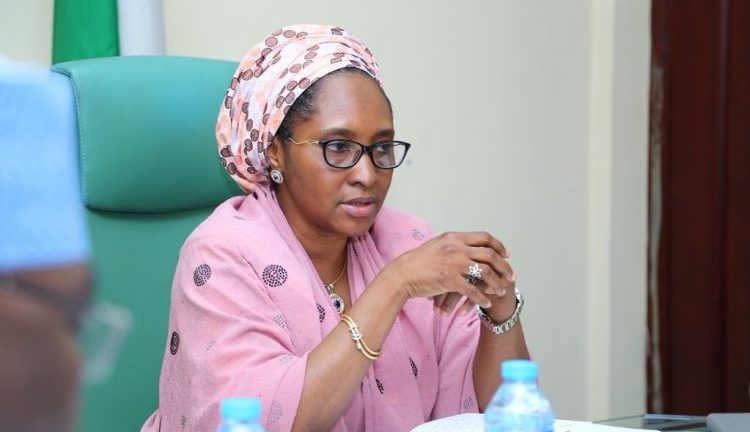The Federal Government is proposing a budget with estimates totalling N19.76tn, while the deficit will hover between N11.30tn and N12.41tn in the 2023 fiscal year.
The Minister of Finance, Budget and National Planning, Zainab Ahmed, who made this known in Abuja on Monday, decried that the government might be unable to provide for treasury funded capital projects next year, especially due to dwindling revenue and payment of subsidies on Premium Motor Spirit popularly known as petrol.
Ahmed, in his presentation to the House of Representatives’ Committee on Finance at the hearing on the proposed 2023-2025 Medium Term Expenditure Framework and Fiscal Strategy Paper, pointed out that crude oil production challenges and PMS subsidy deductions by the Nigerian National Petroleum Company Limited (formerly Nigerian National Petroleum Corporation) constitute a major threat to the country’s revenue growth targets.
She stated that bold, decisive and urgent action must be taken to address revenue under performance and expenditure efficiency at the national and sub-national levels.
The minister said, “In this scenario, the budget deficit is projected to be N11.30tn in 2023, up from N7.35tn in 2022. This represents 5.01 per cent of the estimated GDP (Gross Domestic Products), above the 3 per cent threshold stipulated in the Fiscal Responsibility Act, 2007.”
Ahmed, who analysed the available options, said the government could opt for payment of petrol subsidy from January to December, adding that, “Given the severely constrained fiscal space, budget deficit is projected to be N12.41tn in 2023, up from N7.35tn budgeted in 2022, representing 196 per cent of total FGN revenue or 5.50 per cent of the estimated GDP.”
She stated, “This is significantly above the 3 per cent threshold stipulated in the Fiscal Responsibility Act 2007 and there will be no provision for treasury funded MDA’s capital projects in 2023.”
According to the minister, under the first scenario, the government’s projected revenue for 2023 is N6.34tn, out of which only N373.17bn is expected from oil related revenue, while the balance of N5.97tn will come from non-oil sources.
In the second scenario, Ahmed said, “In addition to subsidy reform, this scenario assumes an aggregate implementation of cost-to-income limit of Government Owned Companies. With these, the 2023 FGN revenue is projected at N8.46tn out of which N.99tn or 23 per cent is projected to come from oil revenue sources.”
She noted that the business-as-usual scenario assumes that subsidy on PMS, which is estimated to be N6.7tn for a full year, will remain in 2023 and be fully provided for, while another scenario is the reform scenario which assumes that petrol subsidy will remain up to mid 2023 based on the 18 month extension announced early 2021, in which case, only N3.6tn will be provided for.
Speaking on the key assumptions of the proposed 2023 budget, Ahmed said oil benchmark is estimated at $70 per barrel, with an oil production benchmark of 1.69 million litres per day and an exchange rate of N435.02 to a dollar, while inflation is expected to grow at 17.16 per cent. The minister added that the GDP is expected to grow at 3.75 per cent, while an upward pressure on prices is expected to be driven by the current and lag effect of the global price surge due to the Russia-Ukraine war, domestic insecurity, rising costs of imports, exchange rate depreciation as well as other supply side constraints.
Chairman of the committee on Finance, James Faleke, pointed out that in the current financial situation in the country, all revenue sources explored by the government were short of revenue.
Faleke said it was obvious that when there is no revenue, every aspect of the country suffers and asked all agencies appearing before the committee to provide the committee with the correct position of their revenue.
He warned that no agency of government would be allowed to play with the revenue of the country.
